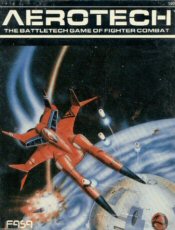How about 4E D&D:
http://www.enworld.org/forum/blogs/mustrum_ridcully/81-first-blog-entry-spaceships.html
Unfortunately I didn't get to go into this further... yet.

--
The biggest problem with space combat system happen when they are used in a "normal" RPG like Star Wars. Most games require a certain dedication of a character to space combat to be remotely effective. But if you do that, you split the party up in those that suck in space combat and whose players hate it, and those that love space combat and don't work so well outside their cockpit.
I think games need to either make the assumption that everyone is a pilot or gunner (maybe like in a Mechwarrior RPG - though I don't know anything about the real one), or they provide a method to make people contribute in space even without the dedicated skills, feats or what other mechanical elements the game offers.
The latter seems to work best if you have some kind of "Bridge Crew" model and the party is flying merely one ship.
I think this reduces the actual tactical interestingness of space combat, since less player units are on the battlefield. Such variants definitely should not require a grid, but even then it seems a little boring to imagine only one spaceship on the players side. But well, at least as long as every player is involved in the battle and can contribute meaningful, this should still work.
We can't always have mass battles. This ain't Star Wars: Attack on the Death Star II, but more Star Wars: The Falcon escapes from a bunch of Star Destroyers and their TIEs - or the Enterprise is engaging a cloaked Romulan Ship.
Roles on the crew seem to be (using Startrek-related terms)
- Tactical Officer: Aims and shoots.
- Commander/Captain: "Leads" the crew. In shows, he makes the calls on what to do, in a game it should probably grant bonuses to attacks or extra attacks and similar things
- Engineer: Makes repairs and provides attack or defense bonuses by juggling energy
- Navigator: Makes the defensive moves and brings the ship into a better tactical position.



